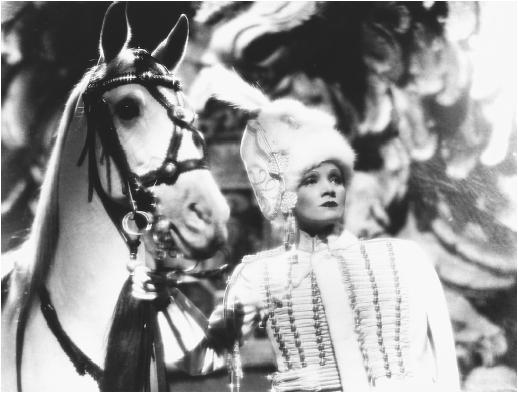
I figure that the best way to start my blog would be to combine my two biggest passions: film and Russia. Every Wednesday this month, Turner Classic Movies is presenting a marathon of films about Russia, documenting Hollywood's portrayal of the nation as its relationship with the United States shifted from friendly to chilly. The first two of these films, Sternberg's The Scarlet Empress (1934) and Boleslawski's Rasputin and the Empress (1932) offer fascinating (though wildly innacurate) portraits of Catherine the Great and Empress Alexandra Feodorovna, respectfully. As the films show, these two powerful women couldn't be more different.
Catherine was, by all accounts, ahead of her time, and Marlene Dietrich plays her as an ambitious but sympathetic woman who initially represses her blossoming sexuality before learning to utilize it as a political weapon to earn the power she feels she deserves. Her forces of seduction are wonderfully illustrated in my favorite scene of the film, in which Catherine intrudes upon a strictly male space, the army barracks, and completely overtakes it with her feminine beauty and raw sex appeal. The soldiers are helpless around her. Gendered spaces don't seem to apply to a woman of such tenacity and allure.
Catherine the Great visits the army barracks
Empress Alexandra (played by Ethel Barrymore), on the other hand, is an old-fashioned passive woman through and through, arguably to the detriment of the entire Russian Empire. A doting mother to her hemophiliac son, the heir to the throne, she trusts his life to the conniving faith healer Rasputin. While Catherine was able to invade male space, here Alexandra allows Rasputin to invade hers, and he exploits the royal family's trust in him in order to make a grab for political power. Blind to the madman's diabolical scheming, she puts her son's health before the welfare of her millions of subjects. In the end, she saves neither.
Rasputin and the Empress Trailer
No comments:
Post a Comment